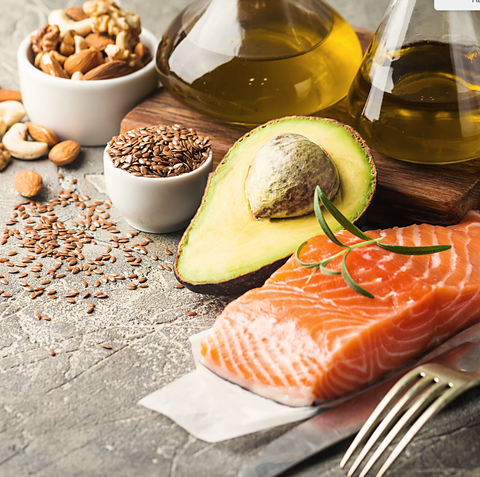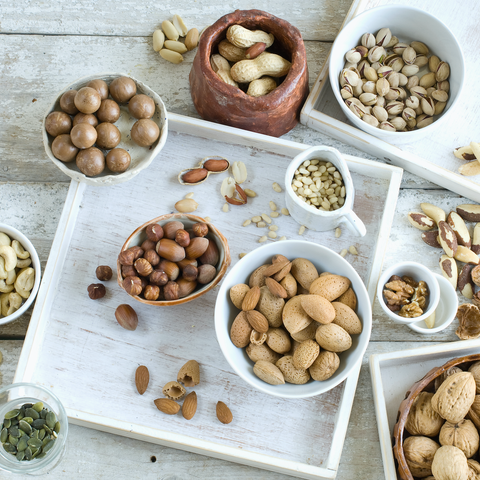Home » Diet & Food »
Fat Won’t Make You Fat, It Will Make You Awesome
Trust not fat fearmongers: The right dietary fats may actually help your heart.
But wait, 15 years ago your friends were making Lipitor jokes when you went out for wing night. Well, turns out scientists unfairly blamed fat as the cause of heart disease.
New research shows that heart trouble may be caused by issues ranging from your parents’ DNA to hypertension and inflammation. What’s more, good fats may in fact help your heart, in addition to preventing cancer and assisting in nutrient absorption.
We digested the past 25 years of nutrition knowledge, talked to the smartest experts about the latest science, and sorted through a lot of nutrition B.S.—all to provide you with the most up-to-date information about dietary fat right now.
How Much Fat Should You Eat?
Aim for six thumb-sized portions daily.

Getty Images
Derive your fats from high-quality proteins (oily fish, grass-fed beef). Use whole fats (butter, olive oil) when cooking instead of fats engineered in a lab (margarine). In general, for overall health, eat a broad mix of fat sources: monounsaturated (like almonds, olive oil, avocados), polyunsaturated (flax/chia, walnuts, fish), and saturated (dark chocolate, butter).
Within the larger picture of your daily diet, that means you’ll want to consume 30 percent of your daily 2,600 calories from protein.
What Fat Should You Cook With? Coconut Oil, Right?
First, know that the number of calories in one tablespoon of any cooking fat ranges from 100 to 120. Butter, canola oil, bacon fat, olive oil, sesame oil—doesn’t matter which.
Second, there’s no one ideal cooking fat. Yes, coconut oil has benefits (though many are overblown), but so does peanut oil, safflower oil, and grass-fed butter. The general consensus is to cook with and consume a variety of fats instead of entrusting your diet to just one.
Three Cooking Oils You’re Not Using Enough
You probably already use olive oil, butter, and a neutral oil like canola. Add these three to your cooking rotation. Each offers a different range of nutrients.

Getty Images
Brazil Nuts
These are the big guys in your nut mix. Twelve of them have nine grams of protein, five grams of fiber, and a payload of healthy fats.
Hemp Seeds
They’re also known as hemp “hearts,” and they carry a faintly roasted flavor. Try them scattered atop a soup or salad for some crunch.
Pumpkin Seeds
They’re not just for Halloween. They’re great roasted and lightly seasoned with smoked paprika for a simple snack. High in fiber, too.
Macadamia Nuts
These stout bulbs taste terrific roasted, crushed, and stirred into oatmeal or yogurt loaded with fruit.
Source: Read Full Article


